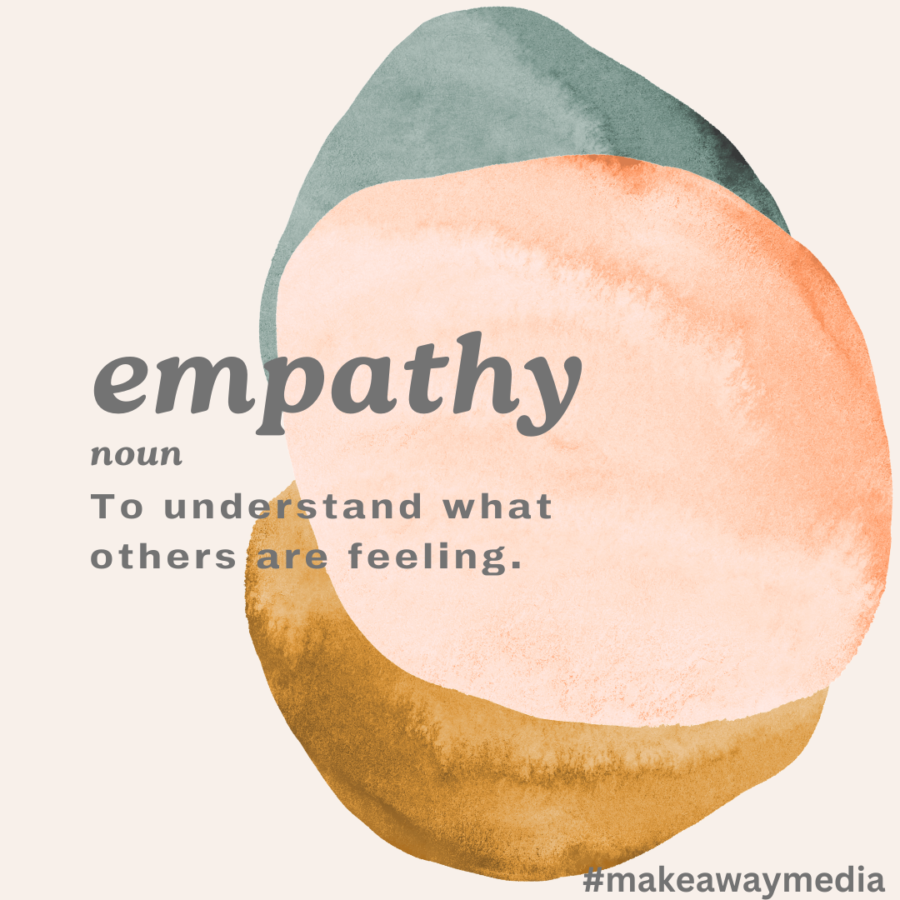When we talk about empathy, we mean putting oneself in other people’s shoes and seeing the world from their perspective. It is a skill that can and should be learned from the time we are itty bitty, but no matter your age, you can always improve your empathy.
But did you know there are different types of empathy?

Cognitive empathy involves understanding on an intellectual level what people might be experiencing. It means you can think “How would I feel if I was in ‘x’ situation? What would I do?”
Somatic empathy means that we can feel what another person is feeling with our bodies. This is when you begin to tear up when you see someone crying. If they are experiencing embarrassment, you might begin to feel that way, too.
Affective empathy is when we notice and respond to the emotions that someone else is experiencing in an appropriate way. If they feel sad, we feel with our emotions their sadness and relate it to our own experiences of sadness. We literally “know how they feel”.
As we improve our empathy skills, we likely become better at all three types of empathy. We understand others on multiple levels, which is a great thing! It reduces the sense of isolation and disconnection between people.
The more empathetic we are, the more comfortable and safe people feel with us because they know we understand them in a way that other people may not.
There is a chance that all this mental and emotional work can be tiring. Empathy fatigue is a real thing and can happen to individuals who are close in tune with other people, like parents, teachers, social workers, and caregivers. If you feel your emotions and other people’s emotions, it can drain your energy. Therefore, it is important to give yourself grace when you feel tired or when your emotions conflict with the emotions of others. You may understand how they feel- but also want to feel how you feel. This has the potential to create a lot of uneasiness and tension. Having someone to talk to and work through these feelings can be beneficial to your overall mental health.
In summary, empathy is a beautiful thing. Imagine walking through life completely clueless to the plight of others. Imagine walking through life with completely clueless to what was going on with you. Neither scenario feels good. Embrace the beauty of empathy, but be sure you are also showing lots of kindness, patience, and empathy with your own emotions as well.

